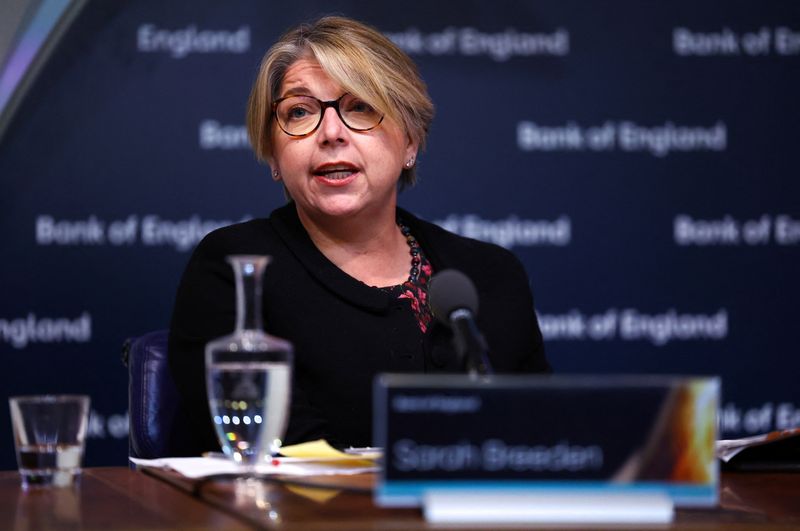BOE Deputy Governor Sees Inflation Resuming Fall After ‘Hump’
PositiveFinancial Markets

Sarah Breeden, the Deputy Governor of the Bank of England, has expressed optimism regarding inflation trends, predicting a decline after a temporary rise to 4%. This insight is significant as it suggests that the current inflation spike may not have lasting effects, which could reassure markets and consumers alike.
— Curated by the World Pulse Now AI Editorial System
















